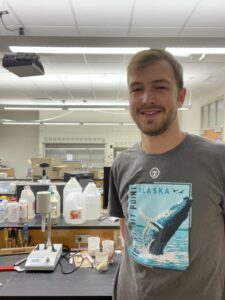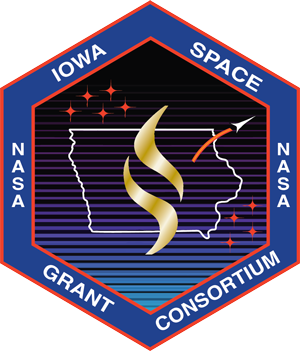 One of the many challenges that face any extraterrestrial mission is the need for high strength while maintaining a low weight during transport to reduce cost. Our academic research consists of creating materials with high strength-to-weight ratio from nanocellulose for extraterrestrial applications. Nanocellulose can be synthesized from cellulose, which is the most common organic polymer found in nature. Nanocellulose is synthesized by applying ultrasonic agitation to a mixture of purified cellulose in water. The result is a very viscous suspension of nanocellulose and water which is dried to form solids. These solids have a strength-to-weight ratio 8 times greater than steel while also remaining stiff. The main problem with making nanocellulose solids is the inability to control the shape of the solid being created and the abundance of cracks and impurities running throughout the solid which reduces the strength. The research currently involves combining nanocellulose of varying sizes, from 1 nanometer to 1 micron, to create a composite which, upon drying, has a lower density while still maintaining strength. During the drying process a nanocellulose suspension will lose 90% of the water, but when combining differing sizes of nanocellulose, volume loss is cut down to 20% which reduces strain on the material when drying leading to less cracking and better shape retention. The solids created are machinable and suitable for building structures. Using nanocellulose for planetary missions would negate the need for bringing building materials, reducing weight and thus reducing fuel needed for transport.
One of the many challenges that face any extraterrestrial mission is the need for high strength while maintaining a low weight during transport to reduce cost. Our academic research consists of creating materials with high strength-to-weight ratio from nanocellulose for extraterrestrial applications. Nanocellulose can be synthesized from cellulose, which is the most common organic polymer found in nature. Nanocellulose is synthesized by applying ultrasonic agitation to a mixture of purified cellulose in water. The result is a very viscous suspension of nanocellulose and water which is dried to form solids. These solids have a strength-to-weight ratio 8 times greater than steel while also remaining stiff. The main problem with making nanocellulose solids is the inability to control the shape of the solid being created and the abundance of cracks and impurities running throughout the solid which reduces the strength. The research currently involves combining nanocellulose of varying sizes, from 1 nanometer to 1 micron, to create a composite which, upon drying, has a lower density while still maintaining strength. During the drying process a nanocellulose suspension will lose 90% of the water, but when combining differing sizes of nanocellulose, volume loss is cut down to 20% which reduces strain on the material when drying leading to less cracking and better shape retention. The solids created are machinable and suitable for building structures. Using nanocellulose for planetary missions would negate the need for bringing building materials, reducing weight and thus reducing fuel needed for transport.

